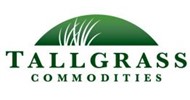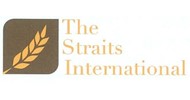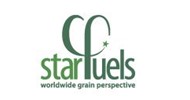US swine researchers have been reporting results of a study in which they were able to help producers slow the growth of hogs during the Covid-19 situation in North America, while they waited for slaughterhouses to re-open.
Prof Dr Mike Tokach is a swine nutritionist with Kansas State University’s Research and Extension and one of the lead investigators. In a press release at the university’s website, he said the study focused on reducing protein sources from the animals’ diet. They focused on pigs weighing 91 kg (200 lbs), targeting the last 32-36 kg (70-80 lbs) those animals needed to reach market weight.

Buying extra time before pigs go to market
Prof Tokach said, “We were able to buy 3.5 to 4 weeks of extra time to get those pigs to market. As many know, that was really crucial when we were going through some of the slowdowns (at packing plants, which caused a backlog of pigs on farms). Buying that extra 3.5 weeks allowed some of our producers to keep their pigs on the farm longer, while not getting them too heavy and still fitting into the packer’s window in terms of weight ranges.”
Prof Dr Joel De Rouchey, just as Prof Tokach swine nutritionist at Kansas State University, said, “If we limit the intake of amino acids, that animal simply is not able to grow as fast. Ultimately that was our goal: to slow down growth while they are still consuming a full amount of feed.”
Testing 4 different finisher pig diets
The researchers tested 4 diets to compare the effect of reduced lysine on pigs’ growth:
1. A diet with normal amounts of lysine for the entire late finishing period;
2. A ‘slow’ diet with normal amounts of lysine until the final 2 weeks of feeding, then a corn-based diet that included only vitamins and minerals;
3. A ‘slow’ diet with reduced amounts (25%) of lysine the entire late finishing period;
4. A ‘slow’ diet with reduced lysine (25%) until the final 2 weeks of feeding, then a corn-based diet that included only vitamins and minerals.
Reducing finisher pig growth substantially
Prof De Rouchey said, “Ultimately what we found through this research is when the pigs were on a slow diet, we reduced their growth performance fairly substantially. In fact, they were about 14 pounds (6.3 kg) lighter at the end of the 44-day finishing period by feeding reduced levels of amino acid.”
He added: “Interestingly, when we put them on a slow diet then moved them to a corn-based diet, they gave up another 12 pounds (5.4kg), or were about 26 pounds (11.7kg) lighter after a 44-day feeding period, which is very substantial. Those diets achieved the goal of holding those pigs while they’re still consuming a full amount of feed.”
Animal welfare
Prof Tokach added, “First and foremost, producers have animal welfare in their minds. You want to do something that is not going to harm the pig, while producing a safe and wholesome food product at the end.”
Kansas pig producers using diets
The researchers also noted that while some swine producers in other Mid-West states in the US made the undesirable decision to euthanise animals this spring, they are not aware of any Kansas producers that went that route. Many of those producers, they said, were using the holding diets prescribed by the university’s swine nutrition team.
Prof Tokach said, “One thing we learned is that you don’t want to start these low-protein diets too early. If we start them too early in the pig’s life, when they have very high levels of protein deposition, we can cause some vices (problems) to occur, and that’s when you have some difficulties on the animal welfare side. But if we start those diets after they are 200 pounds (91kg) or heavier, we have not seen any adverse effects with the pigs.”
Feed efficiency is poor
In the news item at the Kansas State website, Prof DeRouchey noted that one consequence of keeping the pigs on the farm longer is that feed efficiency is poor compared to normal times.
Prof Tokach said, “But when you’re in a situation that you can’t take those pigs to market and they’re already getting close to market weight, your goal is to minimise the cost of keeping those pigs around another day. So even though feed efficiency is poor, the cost of that diet is so much lower when we aren’t including protein (amino acids). So, your actual cost per day is lower for the pig that is fed the corn-based holding diet.”
He closed off saying, “Hopefully, we won’t have to use a strategy like this in the future, but if we have to, I think we have a pretty good idea of how we can prescribe the levels of performance that we want to achieve.”
======
Source: allaboutfeed.com
 Consumer behavior changing dramatically in Asia
Consumer behavior changing dramatically in Asia 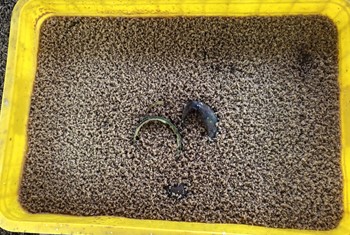 Raising this species of flies and then taking the eggs to sell for 3 million VND / 100 grams of fly eggs
Raising this species of flies and then taking the eggs to sell for 3 million VND / 100 grams of fly eggs 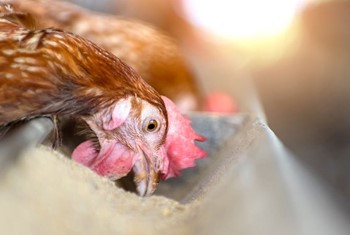 Poland: Poultry feed production hampered by Covid-19
Poland: Poultry feed production hampered by Covid-19 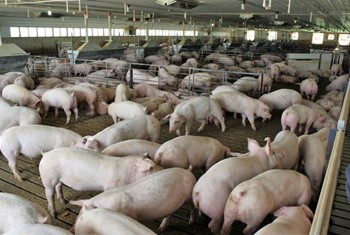 How to slow pig growth due to Covid-19?
How to slow pig growth due to Covid-19? 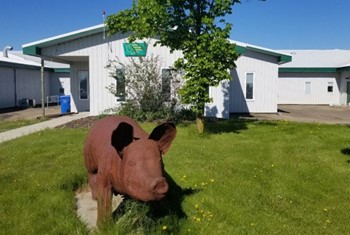 June feed update: What did you miss?
June feed update: What did you miss? 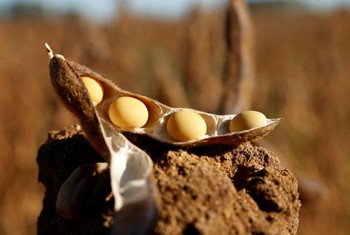 Good weather in the US slightly reduces soy price
Good weather in the US slightly reduces soy price PTT Trading Service Co., Ltd
(Vietnam Address)
462, Pham Thai Buong Street,
(R3-37 My Toan 1 - H4), Phu My Hung,
Tan Phong Ward, District 7,
Ho Chi Minh City, Vietnam
Tel: (+84) 286 6868 5888
Singapore Office:
Blk 457, Pasir Ris Drive 4, #09-305
Singapore 510457
Contact: (+84) 903 077 931
Email: jeffreypang@pttgroup.org




